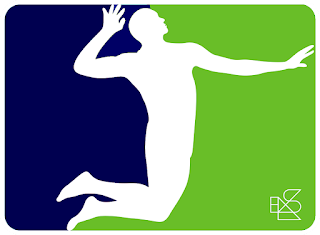Optimising the Focus
We hear a lot about 'narrowing the focus' in terms of developing athletes. But what does this really mean?
Fundamentally, the implication in sport is that you should work fewer athletes so that you achieve greater success. But fewer than what? Fewer when (at what age)? And, how do we know that simply 'narrowing the focus' really means you will have exactly the right resources for those truly worthy?
I had a situation once where I was told I needed to narrow the focus. I explained that every single athlete I was working with could conceivably, in my opinion, achieve success in the proscribed level. I was told I needed to cut athletes regardless. I explained that, in my expert opinion, I knew two things:
There are a number of considerations involved in the philosophy of 'narrowing the focus':
So how about instead of just talking about narrowing things, we start talking about Optimising the Focus. Its a lot harder to determine how to do this, but what we are trying to achieve is hard so we better not expect any of the stages along the way to be anything else.
(Photo Credit)
Fundamentally, the implication in sport is that you should work fewer athletes so that you achieve greater success. But fewer than what? Fewer when (at what age)? And, how do we know that simply 'narrowing the focus' really means you will have exactly the right resources for those truly worthy?
I had a situation once where I was told I needed to narrow the focus. I explained that every single athlete I was working with could conceivably, in my opinion, achieve success in the proscribed level. I was told I needed to cut athletes regardless. I explained that, in my expert opinion, I knew two things:
- I didn't know enough about the athletes to be able to narrow the focus more than I had already
- I knew more about the athletes than anyone else
Does this mean I was carrying athletes who might not make it? Of course. But in my opinion I was ONLY carrying athletes who 'MIGHT' make it, which is a big distinction.
- what actually is the goal? In a sporting sense the answer is generally: to win. But to win when? To win today you might be better having 5, but to win in 10 years, what is the optimal number right now?
- the assumption that having fewer involved means that better results can be achieved with these. Malcolm Gladwell (in David and Goliath) pointed out that there are problems with excelling in class sizes that are 'too small'. There is an interesting challenge to this perspective here, but a number of questions still remain about the assumption that smaller groups are going to achieve more.
- the assumption that when narrowing the focus, we are only 'cutting' athletes who could not have been successful. If we use arbitrary limits to numbers there is no way of knowing this is true.
- the assumption that what is currently there is not the optimal number? How do we know this?
- the assumption that only the athletes who can ultimately win, can contribute to that success. What if we cut the athletes who were the leaders of the culture, because we didn't think they could succeed themselves? Do we still have an environment which can deliver?
- the risk that in narrowing the focus, we lose track of the big picture (as per the picture at the top)
So how about instead of just talking about narrowing things, we start talking about Optimising the Focus. Its a lot harder to determine how to do this, but what we are trying to achieve is hard so we better not expect any of the stages along the way to be anything else.
(Photo Credit)



Comments
Post a Comment